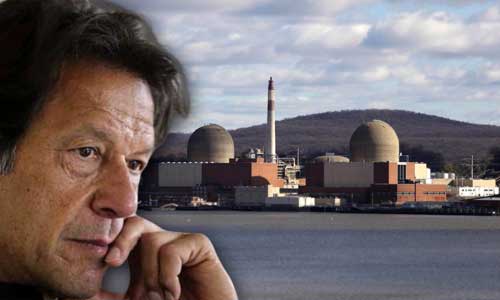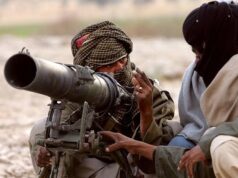‘Sharp increase’ in Pakistan’s efforts to illegally steal Nuclear-tech : Berlin

The German government believes there has been a “sharp increase” in Pakistan’s activities in recent years to illegally procure technology used in nuclear, biological and chemical (NBC) weapons, according to official documents.
The German government conveyed this information in an official reply earlier this month to a question from several lawmakers of die Linke (Left Party), including Sevim Dagdelen, the deputy leader of the party’s parliamentary group.
The government’s reply dovetails with concerns expressed by Bundesamt für Verfassungsschutz (BfV), the German domestic intelligence service, which said in a 2018 report on proliferation-related matters that there had been a “massive increase” in Pakistan’s attempts to clandestinely procure nuclear goods in Germany and other Western countries.
Dagdelen and four other MPs of the Left Party had sought information from the government on quantitative and qualitative changes since 2010 in efforts by foreign countries to illegally procure goods needed for the research and manufacture of chemical, biological, radiological and nuclear (CBRN) weapons and carrier systems from Germany, which is a “worthwhile target area” as it is home to numerous hi-tech companies.
In its reply, the German government said that since 2010, there had been “some quantitative changes” in illegal procurement efforts by states such as Iran, whose activities had witnessed a significant reduction since the Joint Comprehensive Plan of Action (JCPoA) came into force in January 2016.
“By contrast, Pakistan has seen a sharp increase in proliferation-relevant procurement activities in recent years,” the government said in its reply in German, adding “no quantitative change” was seen with regard to North Korea and Syria.
The BfV, in its July 2018 report Proliferation – Wir haben verantwortung (Proliferation – We have a responsibility), had said: “There has been a massive increase in Pakistani procurement attempts both in Germany and in numerous other Western countries. The main focus is on goods that can be used in the field of nuclear technology. Accordingly, intensive efforts are to be expected in the future as well.”
The intelligence agency’s report had also noted that Pakistan hadn’t signed the Nuclear Non-Proliferation Treaty (NPT) and associated security agreements, and that in addition to a civilian nuclear programme, it also had an “extensive military nuclear and carrier technology programme directed against the ‘arch-enemy’ India”.
Pakistan currently has 130 to 140 nuclear weapons and plans to increase this number to 250 atomic warheads by 2025, the report added.
Dagdelen, also a member of the foreign affairs committee of German Parliament, told the TV programme Tagesschau that Iran is “moving in the right direction” in terms of proliferation activities whereas Pakistan, one of the most important recipients of German armaments among developing countries, was “not a reliable partner”.
She said, “Therefore, the federal government must end arms supplies to Pakistan, especially with regard to the Kashmir conflict.”
In 2016, a report by experts at King’s College of London had said that Pakistan should be kept out of the Nuclear Suppliers Group (NSG) because of its use of front companies and other deceptive methods to obtain dual-use goods for its nuclear programme.
The report, prepared by Project Alpha of the Centre for Science and Security Studies at King’s College, said Pakistan’s “deliberate strategy of using deceptive methods to obtain dual-use goods” had undermined its claim to be a responsible actor in the non-proliferation domain.




